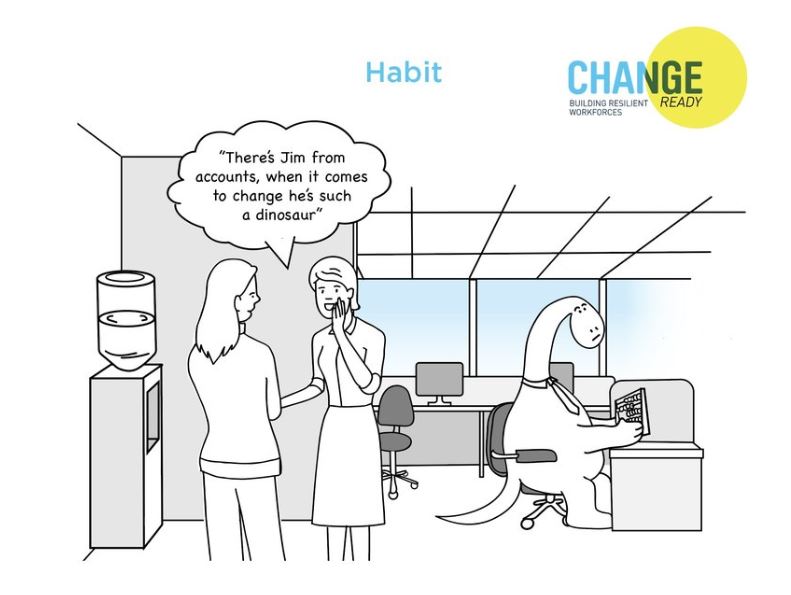Five Great Business Habits – by Simon Rountree
Today’s business landscape is volatile, uncertain, complex and in a state of dynamic change that can impact entire industries at an increasing rate. Business has the choice to either bury their heads in the sand and hope it goes away (remember Kodak) or become open to change and innovation.
Leaders are no longer expected to predict the next industry disruption but they are expected to safe guard their organisations by driving an agile, flexible and resilient workforce that embraces change to create sustainable business solutions.
The companies that have a reputation of dealing with change efficiently and effectively in order to grow all excel at habits that are fundamental to their triple bottom line.
As you read through the following five habits ask yourself if your organisation lives by these.
1. Purpose
This is the driving force behind any great company which succinctly expresses its reason for being beyond the products or services it’s provides. All the company’s goals and actions dove tail into its purpose and most importantly the majority of the staff know exactly what this purpose is and their role in supporting it i.e. Google’s purpose is to organise the world’s information and make it universally accessible and useful.
A 2002 study by Richard Ellsworth (Drucker School of Management) states that businesses whose purpose is to “deliver value to customers” were substantially more profitable over a ten year period that those whose focus was to provide returns to their shareholders.
2. Flexible Controls
All businesses need processes, systems and protocols to ensure the appropriate management and governance of the company. Without these there are no barriers in which to guide behaviours, productivity and efficiency, however they are a double-edged sword. Companies that are flexible with their controls and constantly review and if appropriate refine them consistently outperform companies that have basically the same processes and systems in place for decades. By not being afraid to alter your controls you create an adaptive and agile workforce that is flexible to the changes happening around it i.e. Tesla, Intel etc.
3. Improve Their Offering
Just as important as refining your controls is the importance of refining what you offer your clients. There is a saying that states “Complacency is the enemy of progress,” and this is especially true when it comes to your products and services. Businesses who invest in research and development not just in the improvement of existing products and services for their customers but in innovative new ones stay great for long periods of time i.e. Microsoft, Amazon etc.
4. Employee Focus
Companies that go beyond the standard basics benefits of salaries, annual leave etc and focus on empowering and trusting their workforce have high engagement and productivity scores. By understanding your staff’s needs and adapting to the changes in societal expectations companies can create a number of opportunities that give the workforce choice and flexibility. Virgin are a great example of offering flexibility to their staff through a range of options including fitness programs, flexible hours, generous paternity and maternity leave, working from home etc.
5. Accountability
Companies that foster a culture of accountability have clear expectations as to the behaviours, responsibilities and standards that are acceptable for the business to succeed.
Workforces with strong accountability create transparency within their employees who understand and complete their roles in order to fulfil or further the goals of the business. Accountability is not only core for addressing failings or shortcomings within the business as it creates opportunities to look for new creative solutions but it also identifies those who are performing well i.e. Toyota, Apple etc
Following through on the above five habits is easier said than done and it takes a lot of discipline to imbed these practices, however we can’t ignore the fact that the companies that do this are consistently better performers even in a landscape that is volatile, uncertain and complex.
Article cited from:
https://www.changeready.com.au/blog/2019/3/12/five-great-business-habits
